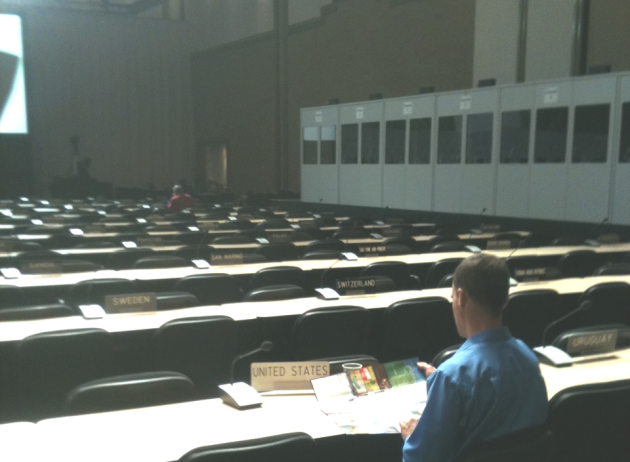December 6, 2010
by karstenbarde
Back on the home front, I’ve been trying to find a more optimstic view of the recent US elections with regard to climate change and the clean energy revolution. I believe if the US makes any progress on reducing carbon emissions it will be because Americans see it in their own economic interest, rather than because of any sense of obligation whatsoever to the UN or international community.
Here are a couple worth sharing:
http://blog.cleantechies.com/2010/12/01/election-does-not-spell-cleantech-doom/
By David Gold, Access Venture Partners
With the recent “shellacking” (as President Obama referred to the election results) of the
Democratically controlled Congress, much of the buzz in the cleantech space has been
doom and gloom. Is cleantech doomed to a new dark age? I do not believe so.
Energy policy is one area where there is an overlap of goals between the parties. Members
of both parties largely agree that energy is critical to our economic and national security.
And most Republicans do not dismiss out of hand the risks of global warming.
I suspect that energy policy will be a topic where this Congress will get something done especially with the President’s increased desire to work across party lines. It won’t be exactly what the president wants and it won’t be exactly what the Republicans want. It will be an old-fashion compromise that may actually result in some policies and that will have greater long-term impact on cleantech than most of the short-term handout programs
that were put in place under the largely ineffective cleantech stimulus bill.
http://www.greentechmedia.com/articles/read/why-the-election-could-be-good-for-green-tech/
By Michael Kannellos, Editor of Greentech Media
Presumptive Speaker of the House John Boehner (R.-Ohio) knows he has to accomplish something other than yammer about creeping socialism. Incessant complaining and a failure to follow through helped undo the last Republican revolution. Whether his allies like it or not, statesman-like compromise is on the agenda.
Clean energy, luckily, remains one of the few issues that enjoys bipartisan support. It also plays well in most regions of the country. Forget the rejection of Prop 23, an anti-greenhouse gas regulation initiative proposed in California, for a moment. Voters in Missouri — the heart of coal country — in 2008 voted for an initiative that required utilities in the state to get 15 percent of their power from renewable sources, according to Rosalind Jackson at Vote Solar. The initiative came about after the legislature failed to act. Voters in Colorado and Washington have both passed renewable standards.
Many now understand the connections between renewable energy and national security and job growth. Two years ago, green jobs were synonymous with Van Jones. Now, they are synonymous with under-employed contractors getting licenses to perform energy retrofits and solar installations.
Whether or not these two optimistic predictions come true, I believe two facts will shape any positive future moves in the US: 1) job creation and energy security are the ONLY effective mainstream frames for clean energy policy; 2) private sector-led investment will respond best and most sustainably to simple price signals on carbon emissions rather than one-off grant and loan packages.
Continue reading David Gold’s piece for some of his ideas, including national renewable energy standards, a gas tax, tax credits for energy efficiency, and government procurement policies.

